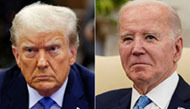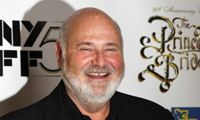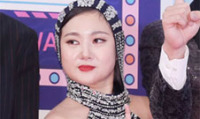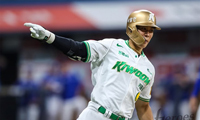A Change in Education: Diverse Books for Diverse Students
Rudine Sims Bishop, author of Perspectives: Choosing and Using Books for the Classroom, says that “when there are enough books available that can act as both mirrors and windows for all our children, they will see that we can celebrate both our difference and our similarities, because together they are what makes us all human.”
Yet in the past 24 years, multicultural content only represents 13% of children’s literature, according to book publisher Lee & Low.
An increase in multicultural literature around the world can provide self-empowerment in students, cultural pluralism, and fresh perspectives for students and teachers alike. Not only are people of different races, sexualities, religions, genders, and other social stratifications necessary as characters in the novels we read, but focusing on how they act in relation to others and events provides an opportunity to examine different behaviors and characteristics across cultures.
“Multicultural literature can be used as a tool to open students’ minds,” Maria Boles from Eastern Michigan University says. The benefits of diverse literature include the development of “facilitating empathy, increased knowledge of one’s own heritage, and fostering positive self-concepts and identity.”
We should not be bound by stories written only by white male authors. Our history shouldn’t be shaped by a single narrative of men and their quests. The limitations posed by the books we are required to read force a limited perspective of our society. These books don’t offer the same worth that they did for past generations.
Take for example William Shakespeare, the profound classical writer of tales which have been anchored in high school curriculums around the world. Although his writing illustrates the deepest art of classic literature, it is limited in the perspective that it provides for readers. We don’t need to completely take out these classics. However, a balance in our literature is needed.
There are already actions being taken for the fight for diversity. Non-profit organizations like We Need Diverse Books advocate for literature that studies the experiences of all readers from elementary to advanced levels with grassroots activism. The school crowdfunding platform Donors Choose has pledged to donate to provide diverse books for diverse learners.
Books that focus on the struggles of minority groups and the experiences that were considered undeserving of being told in the past are vital to our future. As a generation, we cannot promote threads of inclusion if we don’t diversify the books we read at school. We cannot justify reading the same uninspiring books year after year by insisting that they are classics. Students will not be able to substantially think in the outside world if our thoughts are restricted in scope. Yejin Heo/ Northwood High School 10th
스마터리빙
more [ 건강]
[ 건강]이제 혈관 건강도 챙기자!
[현대해운]우리 눈에 보이지 않기 때문에 혈관 건강을 챙기는 것은 결코 쉽지 않은데요. 여러분은 혈관 건강을 유지하기 위해 어떤 노력을 하시나요?
 [ 건강]
[ 건강]내 몸이 건강해지는 과일궁합
 [ 라이프]
[ 라이프]벌레야 물럿거라! 천연 해충제 만들기
 [ 건강]
[ 건강]혈압 낮추는데 좋은 식품
[현대해운]혈관 건강은 주로 노화가 진행되면서 지켜야 할 문제라고 인식되어 왔습니다. 최근 생활 패턴과 식생활의 변화로 혈관의 노화 진행이 빨라지고
사람·사람들
more많이 본 기사
- 트럼프와 여성들 함께 찍힌 ‘엡스타인 사진’ 공개
- 비극 속 시민의 용기 총격범 맨손 제압
- ‘박성광♥’ 이솔이, 암 투병 중 안타까운 소식 “병원 몇 번 가는 건지..내 탓”
- 지구촌 또 ‘총기 난사’… 미·호주 잇단 참사
- 인니 수마트라섬 ‘대홍수’
- 19개주, 전문직 비자 ‘10만불 수수료’ 소송
- 시드니 유대인 총기참사 용의자는 50세 아버지·24세 아들
- 피로 얼룩진 주말…지구촌 곳곳 총격사건 잇달아
- ‘128개 홈디포 매장서 319건 절도’ 플러싱 기반 전문절도단 일망타진
- 버지니아, 도로 상태‘전국 2위’…MD 13위·1위 GA
- “내 한국인 남편, 40일 넘게 개처럼 갇혀있다”
- 뉴욕·뉴저지 등 19개 주정부 H-1B비자‘10만달러 수수료’소송
- 워싱턴 지역 올 겨울 두 번째 눈
- 안수화 회장 연임 확정
- 워싱턴 한국학교협의회, 제37회 교사의 밤
- ‘마리화나 규제 대폭 완화’ 트럼프, 행정명령 검토
- 건축회사 누보하우스
- 오늘 추첨 파워볼 잭팟 11억달러로 ‘껑충’
- 경동중고 동창회 워싱턴지부
- 고려대 워싱턴교우회
- ‘내포 신도시 뉴욕설명회’성황
- ROTC 워싱턴DC 문무회
- 백화점서 아기 기저귀 갈던 엄마 40대 정신질환자에 흉기 피습
- [경제 트렌드] 외식비 줄이는 소비자… ‘팁 공포’ 한몫
- 페어팩스 고교에 폭발물 소동…10월에 이어 두번째
- 새 회장에 유흥태·부회장 최인환 목사 선출
- 통계로 본 올해 대한항공… ‘캡틴 아메리카’ 가장 많이 보고, 최다 방문지 도쿄
- 박나래 ‘링거이모’, 진짜 ‘無면허’였다 “박나래 알지만 전혀 기억 안 나”
- MD 체육회장 입후보 등록 시작
- 항공기 승객정보 활용 추방 확대
- 호주 총격범 제압 시민 영웅은 43세 과일가게 주인 아흐메드 씨
- 팝핀현준, 수업 중 발언 논란에 교수직 사임… “진심으로 사과”
- “성과는 있었지만 아직 끝 아냐”
- “스마트폰 달고 사는 당신, 안구건조증 주의하세요!”
- 정우성 “현빈과 텐션 점점 무르익어”…사생활 변화엔 “말씀 못 드려”
- 오늘의 베네수엘라가 내일의 동아시아국… 1
- 중국 ‘여행자제령’ 직격탄 맞은 일본
- 테슬라 11월 미국 판매… 4년만에 최저
- ‘아연’의 효과… 올바르게 복용하면 감기 기간 줄일 수도
- ‘해리가 샐리를 만났을 때’ 롭 라이너 감독 부부 피살
- “트럼프, 바이든 데자뷔인줄” 취임 1년새 고령 논란·지지율 뚝
- “걱정했잖아” 윤정수, 비 그친 발리서 ♥원진서와 신혼여행 만끽
- 미, 베네수엘라 지상전 위협… 쿠바까지 흔들기
- 총격 상처 피해 진학한 대학서 또 총기난사… “엄청난 타격”
- 아이비리그 합격 가르는 것은 ‘스펙’ 아닌 ‘습관’
- 남가주한인부동산협회, 송년모임 개최
- 관세가 끌어올린 물가… 가구당 1,200달러 추가 지출
- 연말 DUI 집중 단속 무관용 강력 처벌
- 퇴조의 핑크 타이드
- 뉴욕 백화점서 아기 기저귀 갈던 엄마, 정신질환자에 흉기피습
1/5지식톡

-
 테슬라 자동차 시트커버 장착
0
테슬라 자동차 시트커버 장착
0테슬라 시트커버, 사놓고 아직 못 씌우셨죠?장착이 생각보다 쉽지 않습니다.20년 경력 전문가에게 맡기세요 — 깔끔하고 딱 맞게 장착해드립니다!장착비용:앞좌석: $40뒷좌석: $60앞·뒷좌석 …
-
 식당용 부탄가스
0
식당용 부탄가스
0식당용 부탄가스 홀세일 합니다 로스앤젤레스 다운타운 픽업 가능 안녕 하세요?강아지 & 고양이 모든 애완동물 / 반려동물 식품 & 모든 애완동물/반려동물 관련 제품들 전문적으로 홀세일/취급하는 회사 입니다 100% …
-
 ACSL 국제 컴퓨터 과학 대회, …
0
ACSL 국제 컴퓨터 과학 대회, …
0웹사이트 : www.eduspot.co.kr 카카오톡 상담하기 : https://pf.kakao.com/_BEQWxb블로그 : https://blog.naver.com/eduspotmain안녕하세요, 에듀스팟입니다…
-
 바디프렌드 안마의자 창고 리퍼브 세…
0
바디프렌드 안마의자 창고 리퍼브 세…
0거의 새제품급 리퍼브 안마의자 대방출 한다고 합니다!8월 23일(토)…24일(일) 단 이틀!특가 판매가Famille: $500 ~ $1,000Falcon: $1,500 ~ $2,500픽업 & 배송직접 픽업 가능LA…
-
 바디프렌드 안마의자 창고 리퍼브 세…
0
바디프렌드 안마의자 창고 리퍼브 세…
0거의 새제품급 리퍼브 안마의자 대방출 한다고 합니다!8월 23일(토)…24일(일) 단 이틀!특가 판매가Famille: $500 ~ $1,000Falcon: $1,500 ~ $2,500픽업 & 배송직접 픽업 가능LA…
케이타운 1번가
오피니언
 옥세철 논설위원
옥세철 논설위원오늘의 베네수엘라가 내일의 동아시아국가…

퇴조의 핑크 타이드
 조지 F·윌 워싱턴포스트 칼럼니스트
조지 F·윌 워싱턴포스트 칼럼니스트 [조지 F. 윌 칼럼] 대통령의 전쟁수행권
 조옥규 수필가
조옥규 수필가 투고(To Go) 해야 하나?
 신경립 / 서울경제
신경립 / 서울경제 [만화경] ‘뒷마당’ 찾겠다는 트럼프식 먼로주의

22기 LA평통 출범에 거는 기대

연말 시즌 사기·범죄 경계해야
 메건 매카들 워싱턴포스트 칼럼니스트
메건 매카들 워싱턴포스트 칼럼니스트 [메건 매카들 칼럼] 장편영화의 마지막 챕터인가
 김미선 서북미문인협회 회장시인
김미선 서북미문인협회 회장시인 [한국춘추] 하늘을 계산한 사람들, 칠정산
1/3지사별 뉴스

피로 얼룩진 주말…지구촌 곳곳 총격사건 잇달아
지난 주말 동안 미동부 아이비리그 브라운대학에서 총격 사건이 발생, 최소 2명이 사망하고 9명이 부상한데 이어 호주 시드니에서는 사망자 16…
뉴욕·뉴저지 등 19개 주정부 H-1B비자‘10만달러 수수료’소송

워싱턴 한국학교협의회, 제37회 교사의 밤
재미한국학교 워싱턴지역협의회(회장 정광미)가 13일 ‘제 37회 교사의 밤’을 개최, 한 해 동안 헌신한 교사들의 노고를 위로했다. 올해 최우…
안수화 회장 연임 확정

총격 상처 피해 진학한 대학서 또 총기난사… “엄청난 타격”
고교 총격 사건 생존자인 미아 트레타가 브라운대 총격 사건 이후 인터뷰하는 모습. [로이터]동부 브라운대에서 총격 사건으로 10여명의 사상자가…
내년 중간선거 낙관못하는 트럼프… “경제성과 전달에 시간 걸려”

오늘 하루 이 창 열지 않음 닫기 





















































.png)


댓글 안에 당신의 성숙함도 담아 주세요.
'오늘의 한마디'는 기사에 대하여 자신의 생각을 말하고 남의 생각을 들으며 서로 다양한 의견을 나누는 공간입니다. 그러나 간혹 불건전한 내용을 올리시는 분들이 계셔서 건전한 인터넷문화 정착을 위해 아래와 같은 운영원칙을 적용합니다.
자체 모니터링을 통해 아래에 해당하는 내용이 포함된 댓글이 발견되면 예고없이 삭제 조치를 하겠습니다.
불건전한 댓글을 올리거나, 이름에 비속어 및 상대방의 불쾌감을 주는 단어를 사용, 유명인 또는 특정 일반인을 사칭하는 경우 이용에 대한 차단 제재를 받을 수 있습니다. 차단될 경우, 일주일간 댓글을 달수 없게 됩니다.
명예훼손, 개인정보 유출, 욕설 등 법률에 위반되는 댓글은 관계 법령에 의거 민형사상 처벌을 받을 수 있으니 이용에 주의를 부탁드립니다.
Close
x